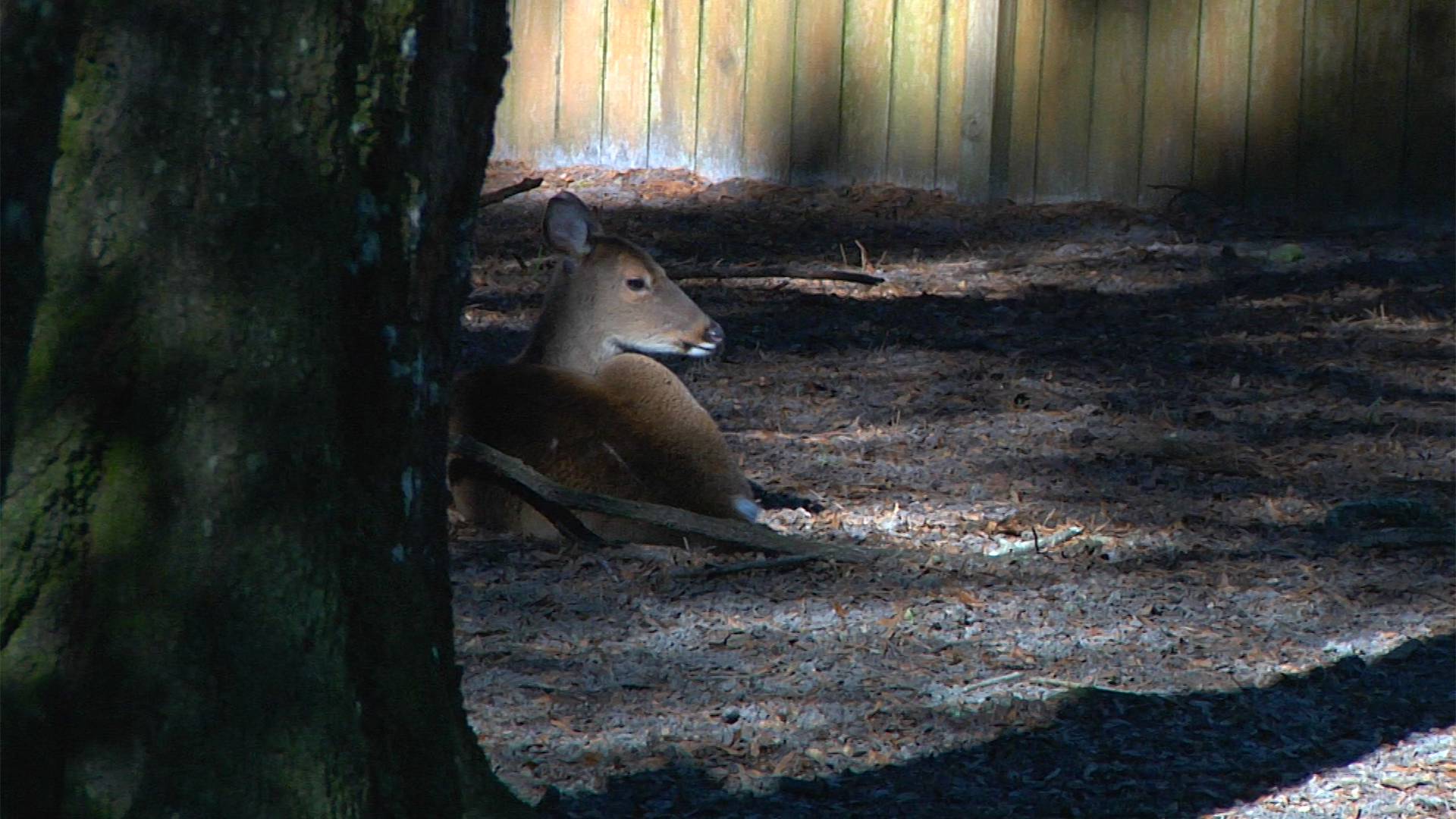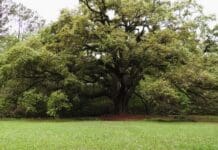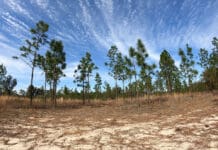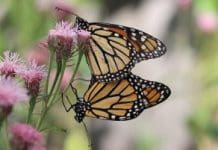

Down in the woods of Wakulla County, several small, rundown buildings sit on six and a half acres – the home of the Florida Wild Mammal Association, which has provided a temporary home and rehabilitation services to injured animals for more than twenty years. Their mission is to take in injured wildlife and return it back to the wild when healed and to educate the public on wildlife issues. The FWMA provides those services for Franklin, Wakulla, Jefferson and Taylor counties.
“Hawks, owls, eagles, deer, raccoons, opossums, squirrels…” Chris Beatty is the founder and executive director. “We have quite a lot of pelicans. All the areas we serve are all coastal counties, so we get a lot of seabirds. A lot of deer, a lot of seabirds and a lot of barred owls.”
Florida Wild Mammal Association has outgrown their six and a half acres. The large number of deer taken in is part of the problem because they require a lot of space. And the education side of the operation must be separate from the rehabilitation side. Their permits are restricted because they do rehabilitation with animals that can’t be viewed or tamed. Education needs to happen in a separate location or in an adjoining location – but it can’t encroach on the rehabilitation area. They have outgrown their current location.
In addition to the space needs, the onsite facilities are also in dire need of replacement. Animals keep chewing through the walls, so there are holes everywhere. The animal feed that is kept in the buildings attracts everything that lives in the woods – squirrels, rats, snakes… they break in because they know there’s food in the buildings. One of the desired upgrades is concrete buildings to prevent that from happening.
“We wrote for several grants towards the building of the medical room and they’re specifically for that purpose. They can’t be used for any other purpose. They can’t be used to buy land. They can’t be used to operate the center here. They have to be used specifically for the medical room buildings,” notes Beatty.
Over the years, small portable buildings were brought to the site and renovated for use as feed sheds and laundry facilities. One goal is to consolidate into one building so that when volunteers and staff come to work, they have one building to work out of. That one building would house the baby bird room, the medical treatment center, a place for a vet, a kitchen, a laundry room… and a bathroom. Currently all those things are in small buildings located all over the property that have gotten old and each has its own problems. Consolidating it all into one cinderblock building would eliminate most of the problems with predators.
The Florida Mammal Wildlife Association is well on its way to covering the construction cost of the new medical building. Plans are already drawn up to include a big medical room, an isolation room, a place for veterinary staff, a baby bird room, laundry, and a bathroom. Outside includes flight cages down the sides of the building, which can be partitioned off for multiple birds of prey or other animals because it will be designed to be multi-purpose. The cost of the new building is a little over $100,000 and about two thirds of that has been raised. That money goes only to the new building, but there are other items that need to be funded as well.
Before the grant money expires, they need to either raise the money to buy about 15 acres of land, have land donated to the FWMA, or possibly enter into a generous long-term lease for the land – but they need the land before they can build the new animal rehab facility.
“For the last two years, every penny we’ve gotten, we’ve put in towards the medical room building instead of putting it towards, you know, trying to fix up more and more and more of here,” says Chris Beatty. “A lot of work needs to be done to these cages, but we said ‘what’s more important?’ So we’re really trying to make this jump… and it’s a jump! It’s a leap – a huge leap. Hopefully it will work. It’s badly needed in these four counties. There’s no other rehabilitation center in these four counties, so I think that’s the main goal… to make sure it stays open.”
If you are interested in the changes taking place at the Florida Wild Mammal Association or would like to help, you can find them online at FWMA.org.




